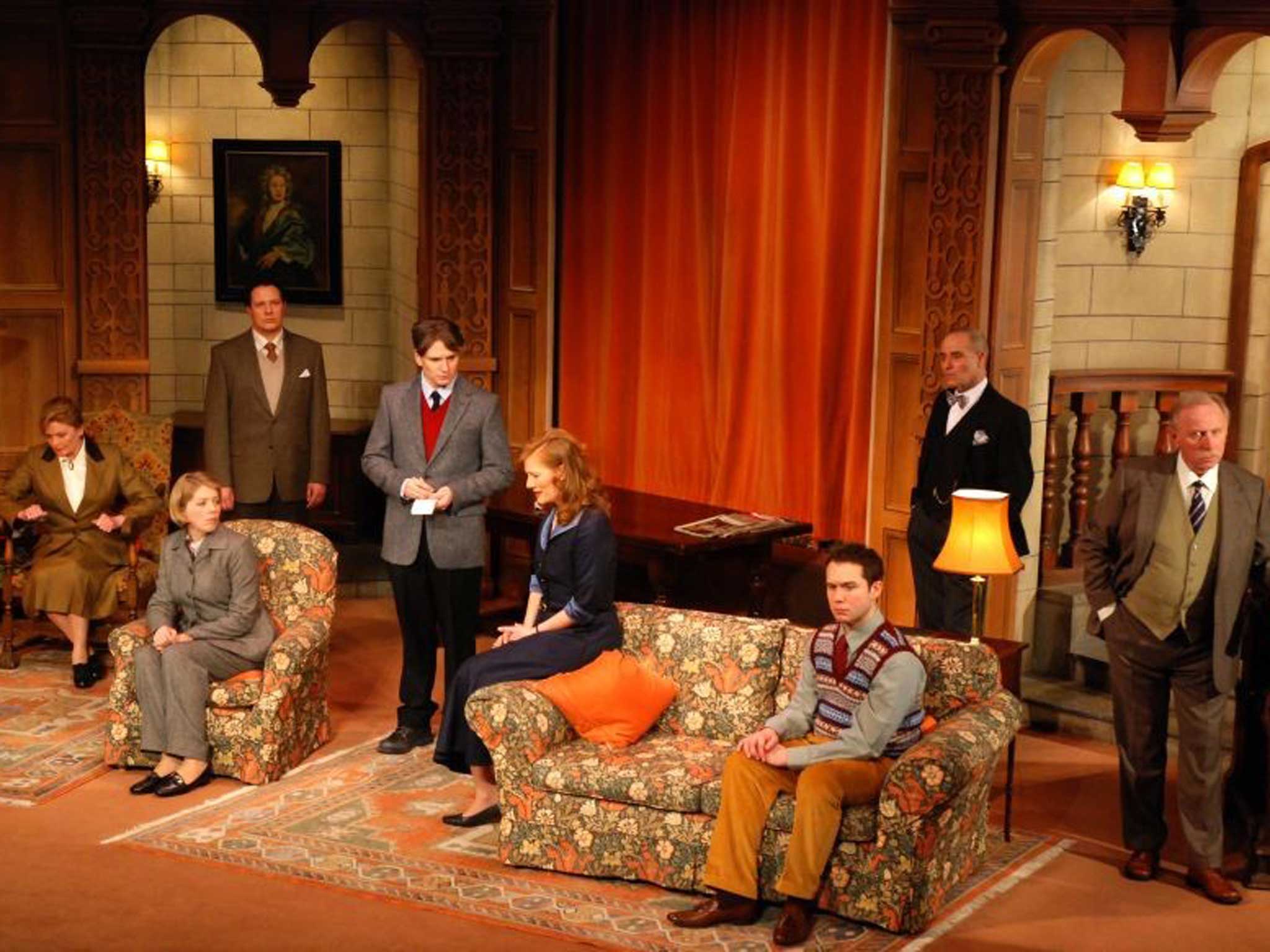Curtain Up: Agatha Christie: A Life in Theatre by Julius Green; book review

Your support helps us to tell the story
From reproductive rights to climate change to Big Tech, The Independent is on the ground when the story is developing. Whether it's investigating the financials of Elon Musk's pro-Trump PAC or producing our latest documentary, 'The A Word', which shines a light on the American women fighting for reproductive rights, we know how important it is to parse out the facts from the messaging.
At such a critical moment in US history, we need reporters on the ground. Your donation allows us to keep sending journalists to speak to both sides of the story.
The Independent is trusted by Americans across the entire political spectrum. And unlike many other quality news outlets, we choose not to lock Americans out of our reporting and analysis with paywalls. We believe quality journalism should be available to everyone, paid for by those who can afford it.
Your support makes all the difference.When Agatha Christie’s The Mousetrap was being tried out in Nottingham in October 1952 the cast had their doubts about its success. One night the actors, including Richard Attenborough, who played Detective Sergeant Trotter, discussed the nuances of the second act into the small hours. After listening to their concerns the bestselling novelist stood up and said goodnight with the words, “I should stop worrying and get off to bed. I think we might get quite a nice little run out of it.”
That “nice little run” has gone on to make theatrical history: 63 years – and over 25,000 performances – later The Mousetrap is now the world’s longest running play. The extraordinary success of the archetypal country house murder mystery has perhaps eclipsed the merits of Christie’s other plays, which are detailed at length in Julius Green’s comprehensive account.
Green – a West End theatre producer and the driving force behind the Agatha Christie Theatre Company – makes grand claims for the dramatic works of the Queen of Crime. “This is the story of the most successful female playwright of all time,” runs his opening sentence. “She also wrote some books.”
While it is true that Christie – who still holds the record for the world’s bestselling novelist – was an incredibly popular playwright (she is the only female dramatist to have three works running in the West End at the same time) I’d take issue with Green’s statement that “playwriting was her true vocation”. Christie adored writing for the theatre precisely because she regarded it as something different to her “day job” of producing books, some of which should be regarded not only as classics of the genre but fine novels in themselves.
For this book, Green turned detective himself and scoured archives around the world to unearth a number of unpublished, unknown works. Of particular interest to Christie scholars is one called The Lie, which Agatha described as “a gloomy play, mainly about incest.” Green states that if this play had been performed when it had first been written, thought to be at some point in the 1920s, “then the history of Agatha Christie, playwright might have been very different.” The work also contains the line, “His bad qualities were all beneath the surface,” which perhaps expresses the author’s feelings about her first husband Archie, who left her for a younger woman in 1926.
Central is the relationship that Christie had with Peter Saunders, the theatrical impresario who transformed her into the Queen of the West End. After taking a gamble on The Hollow – which Christie adapted from her own novel – Saunders went on to produce not just The Mousetrap but her masterpiece, Witness for the Prosecution, with its famous multiple twists, four of which come in the last two pages of the play.
This book is a treat more for die-hard fans of Agatha than the general reader. It does, however, contain a letter that Christie wrote to her sometimes critical daughter, Rosalind, which is more than worth the cost (£30) of this 600-page tome. “If you’d succeeded in making me stick to books – there would probably have been no Mousetrap – no Witness for the Prosecution – no Spider’s Web,” she wrote. After defending her playwriting, Christie concludes, “If one doesn’t take a few risks in life one might as well be dead.”
Join our commenting forum
Join thought-provoking conversations, follow other Independent readers and see their replies
Comments